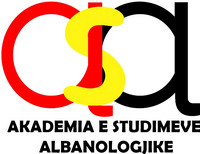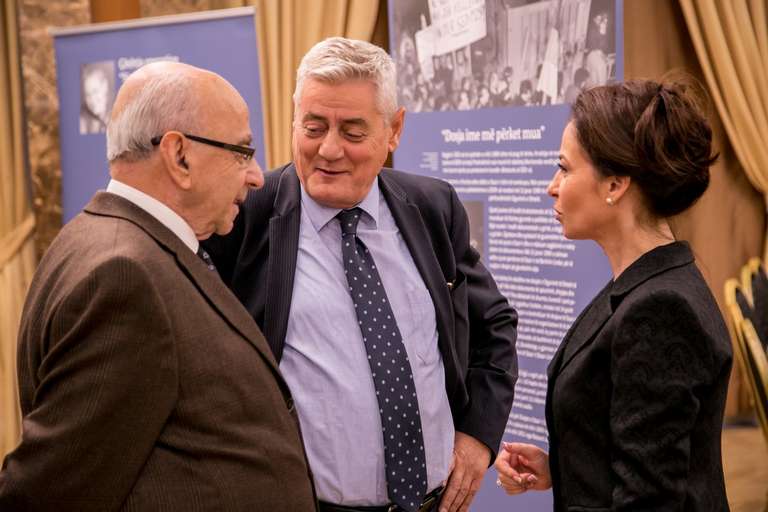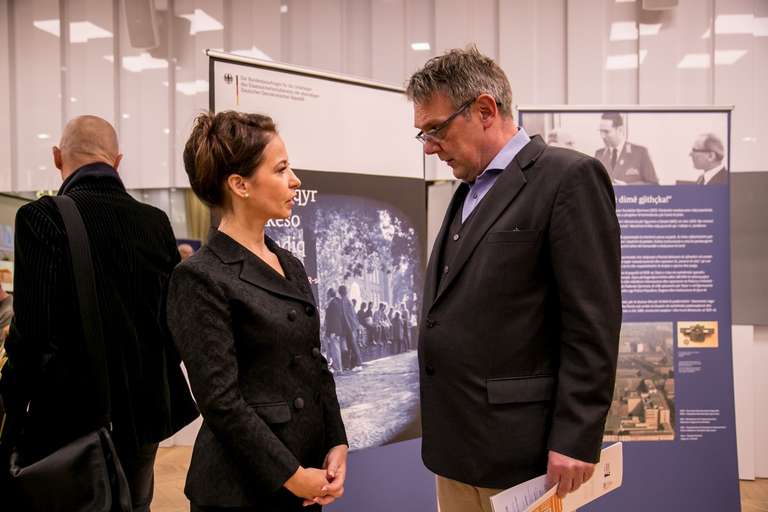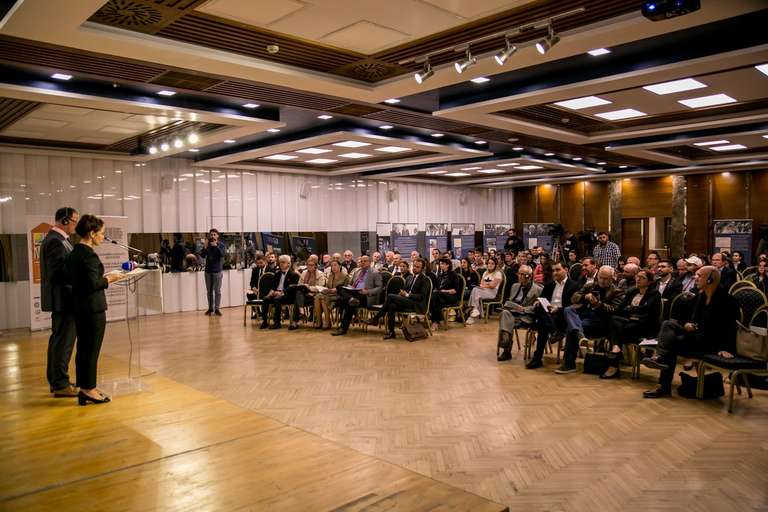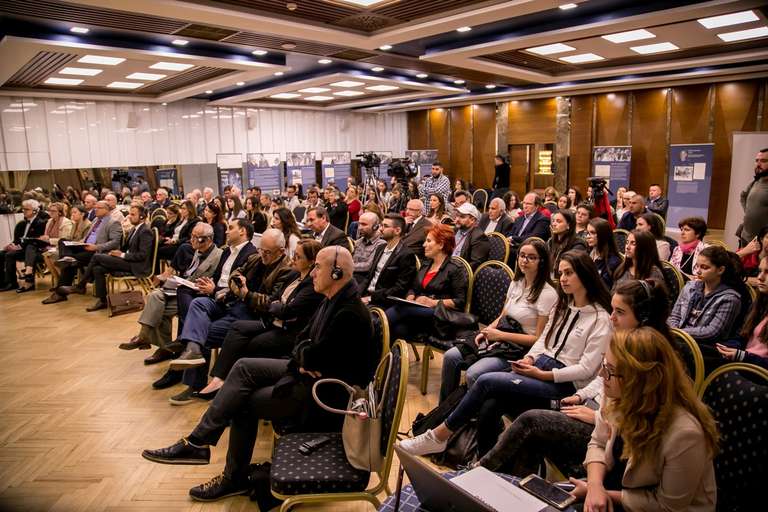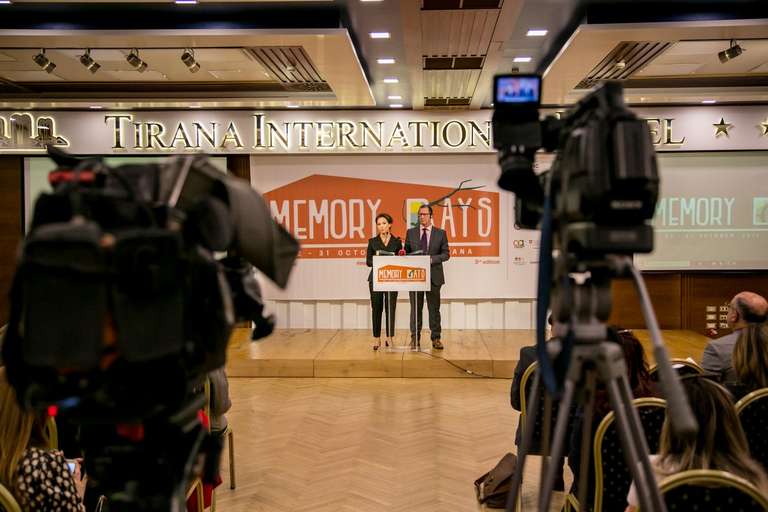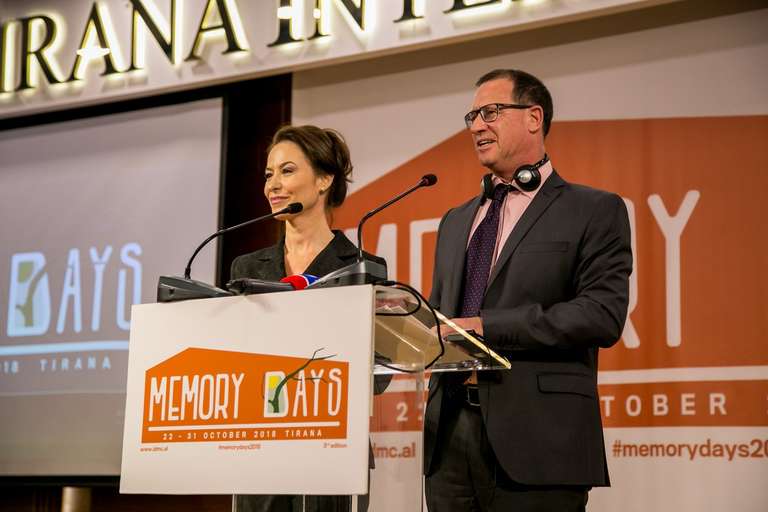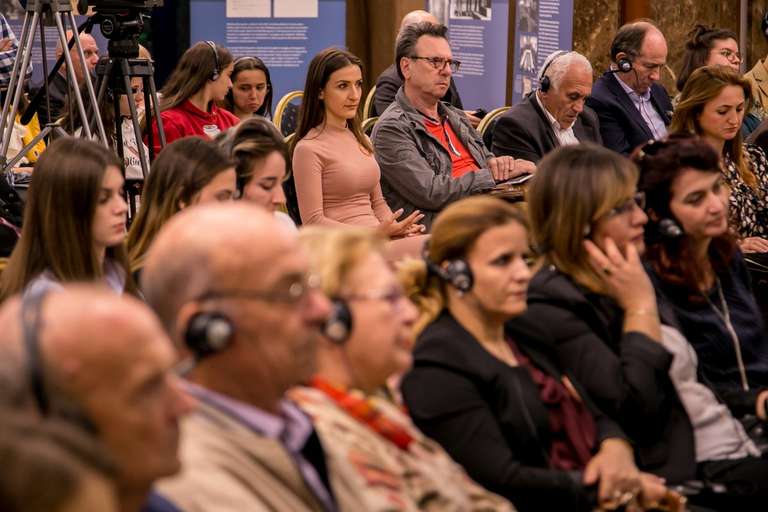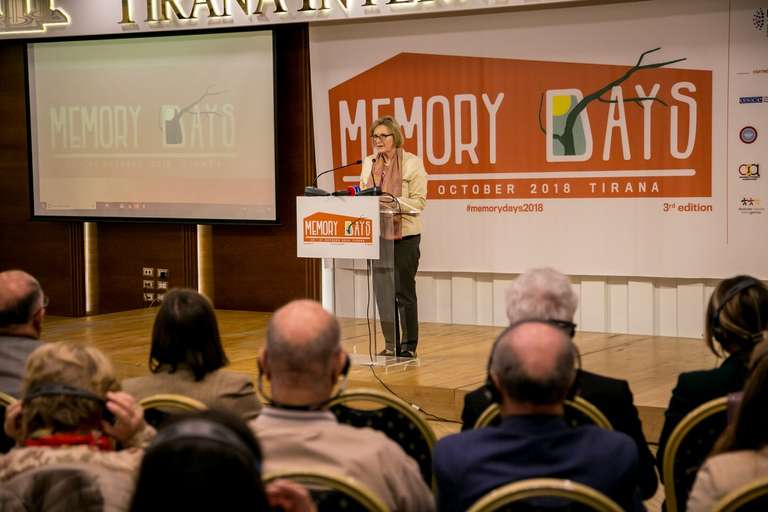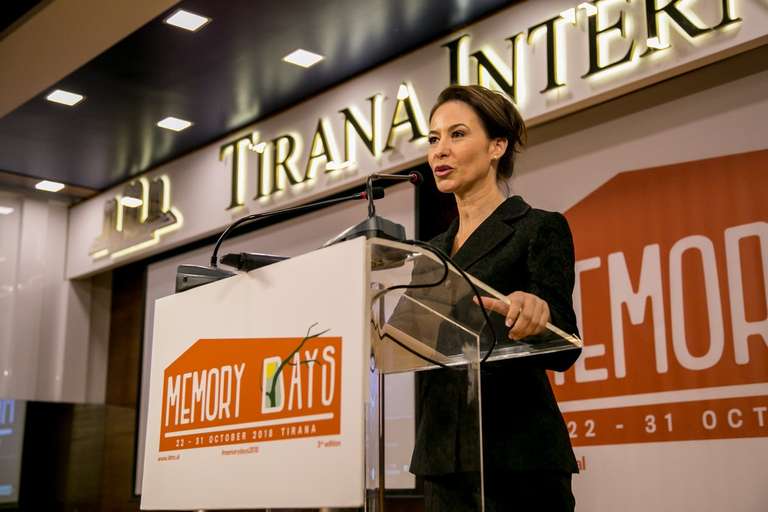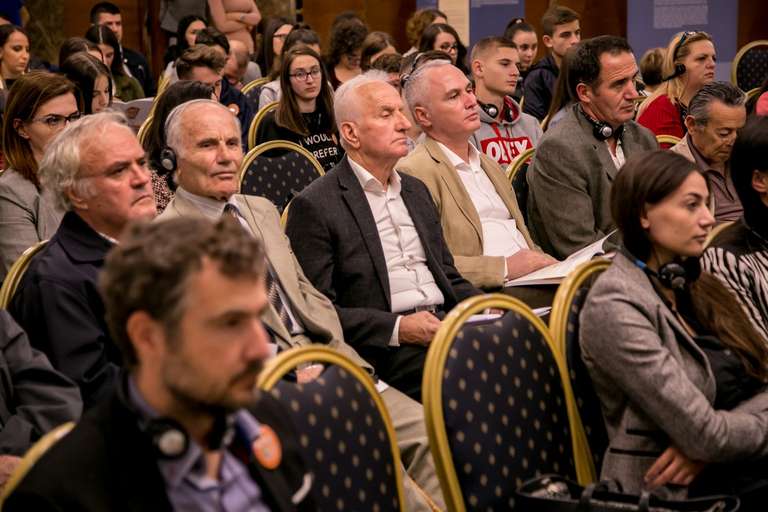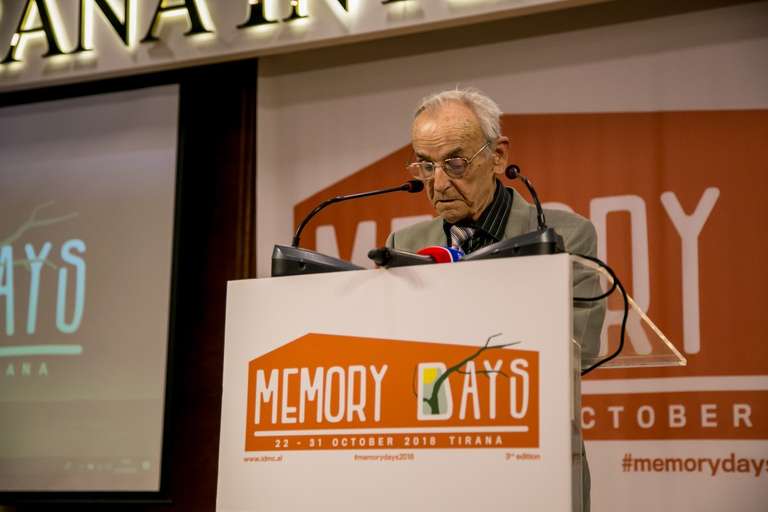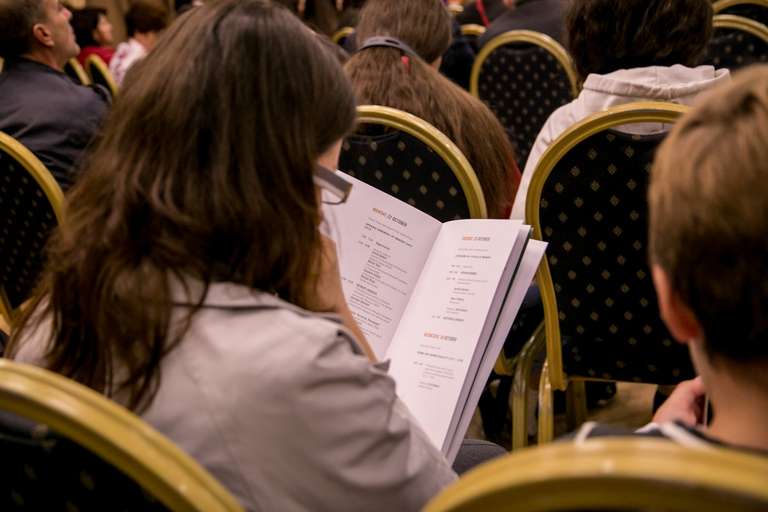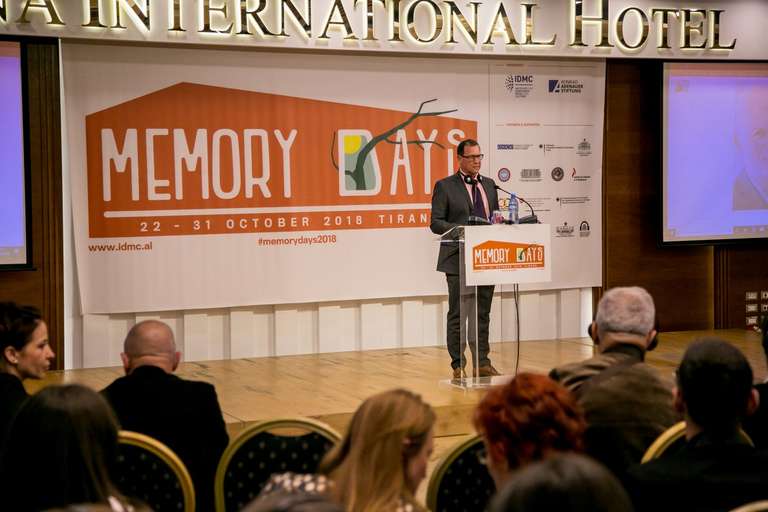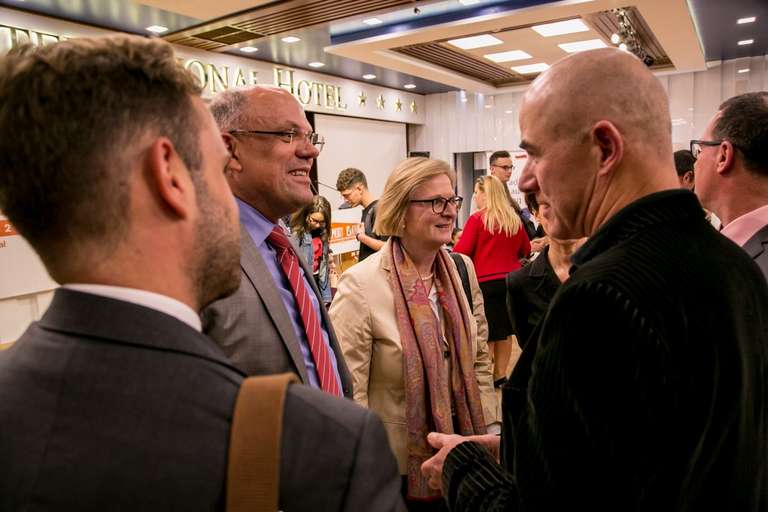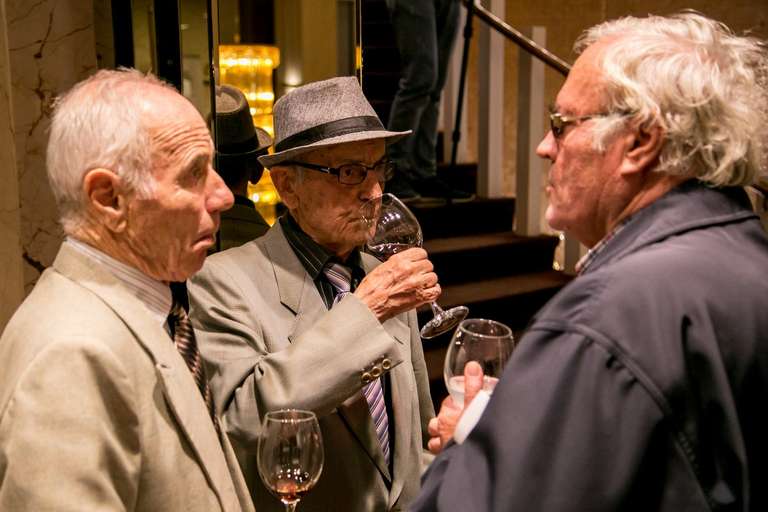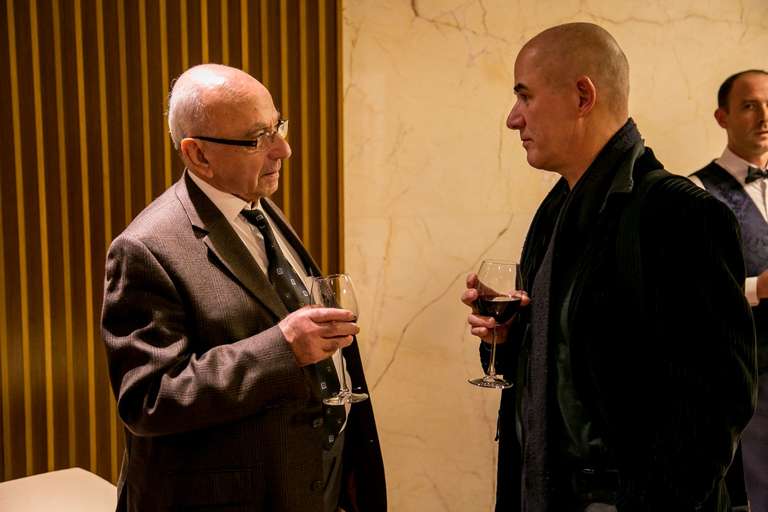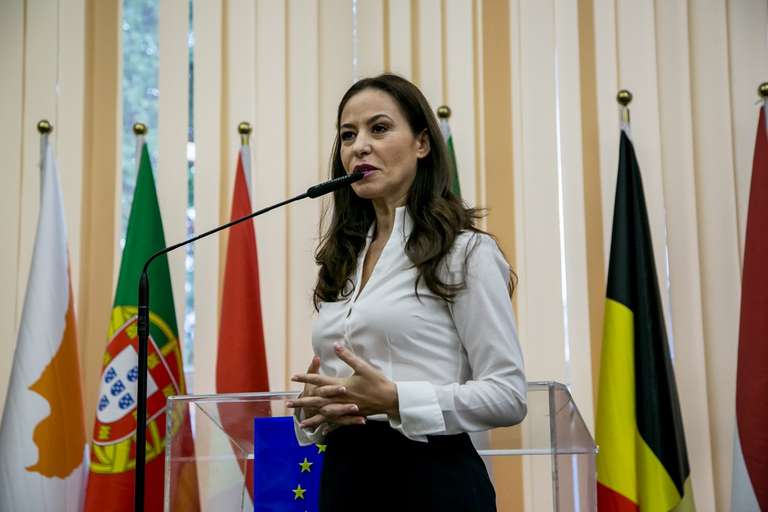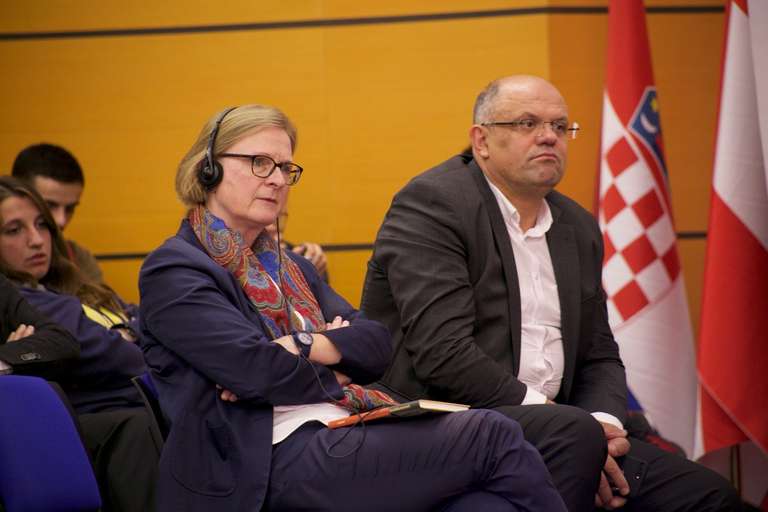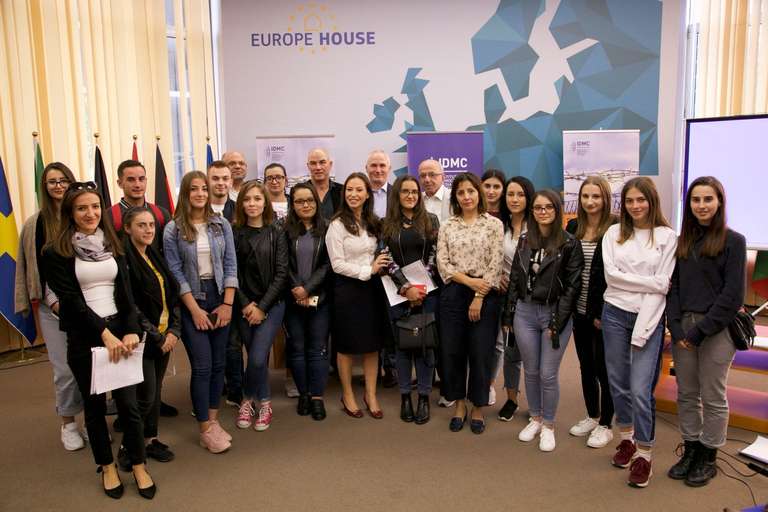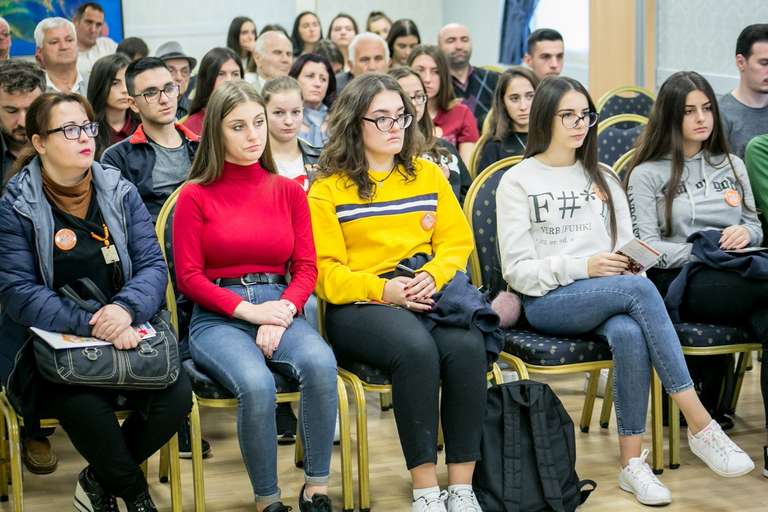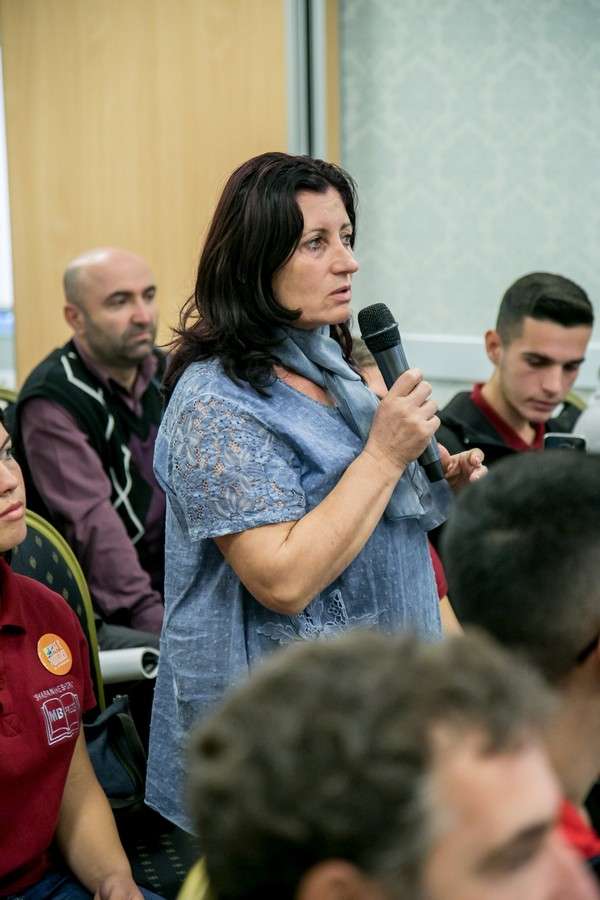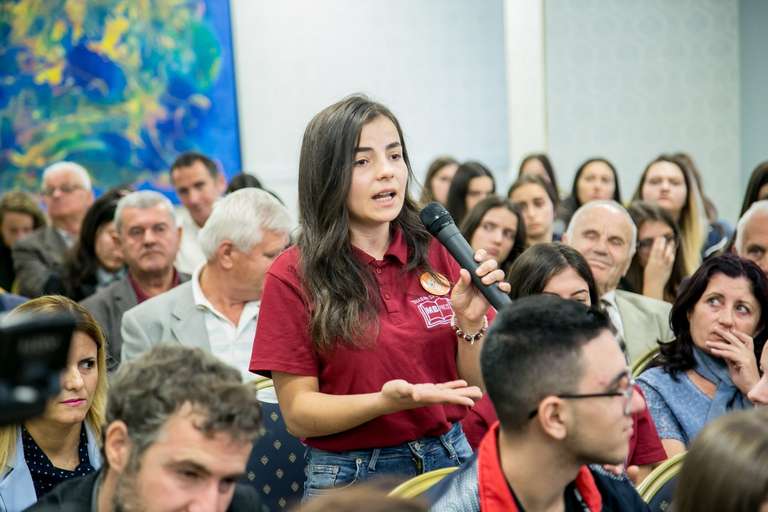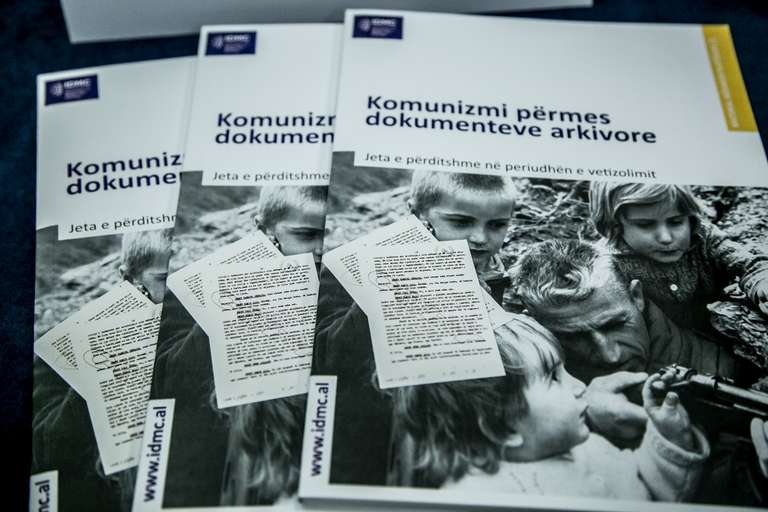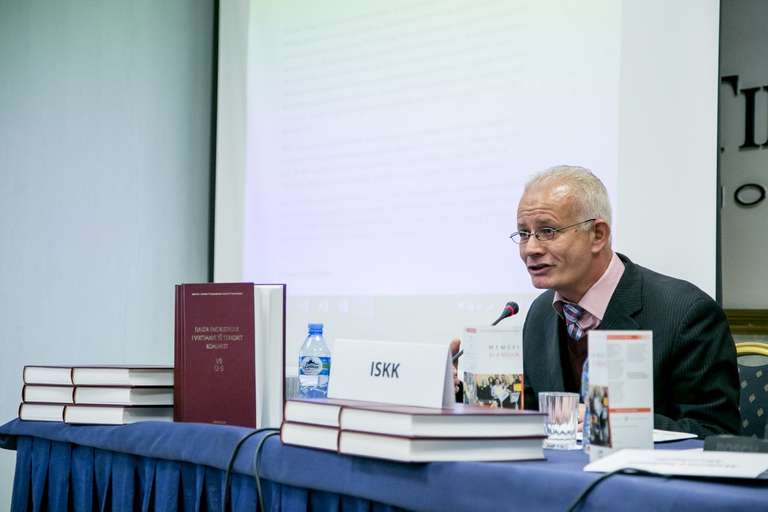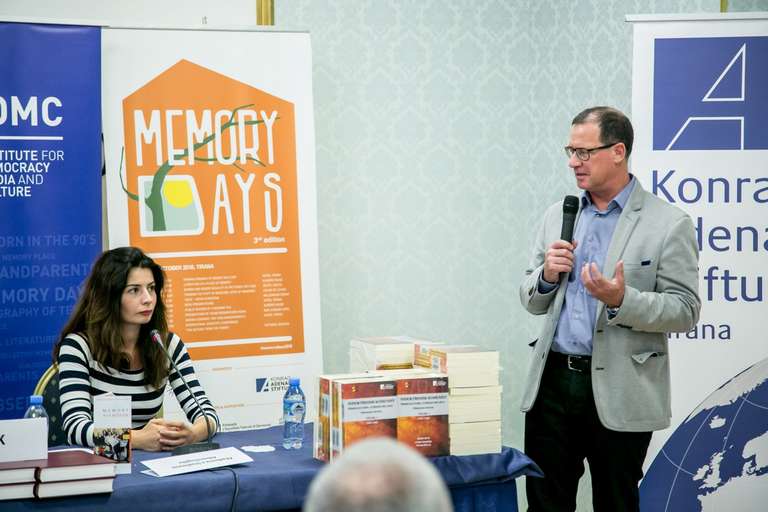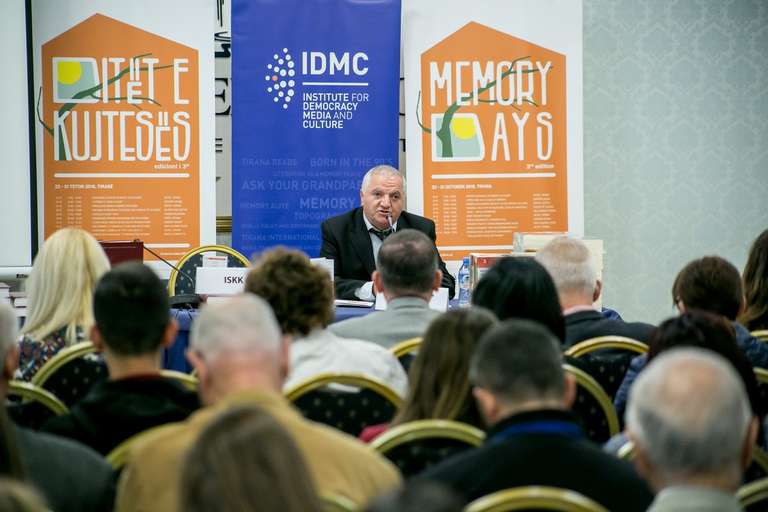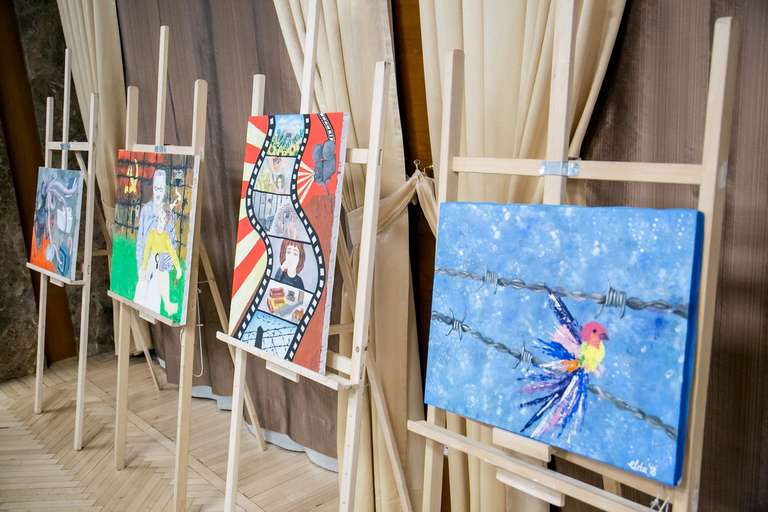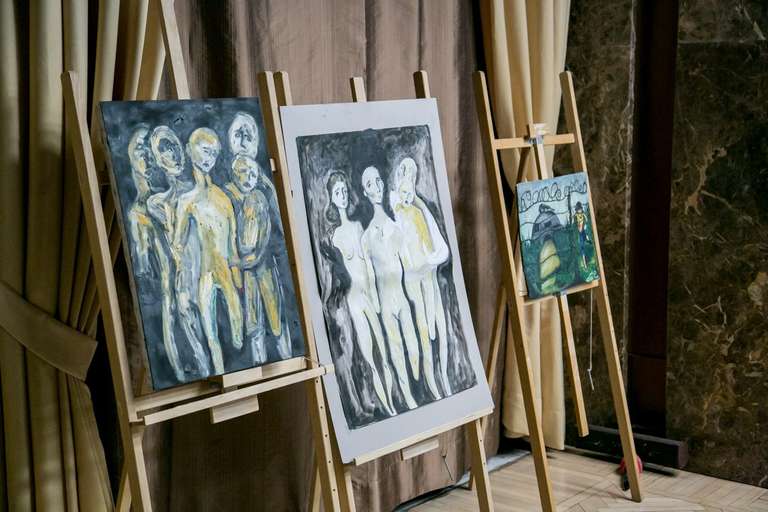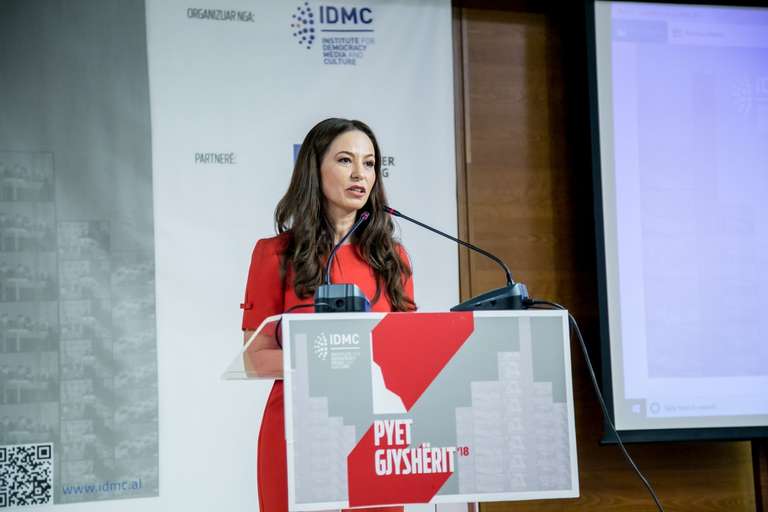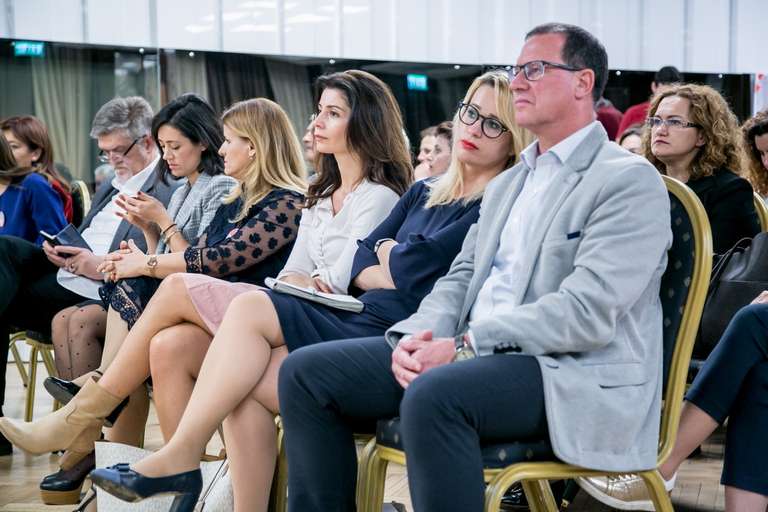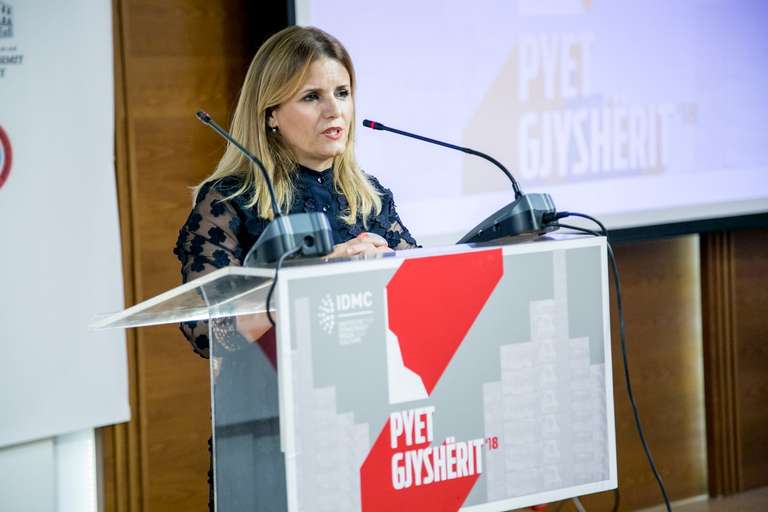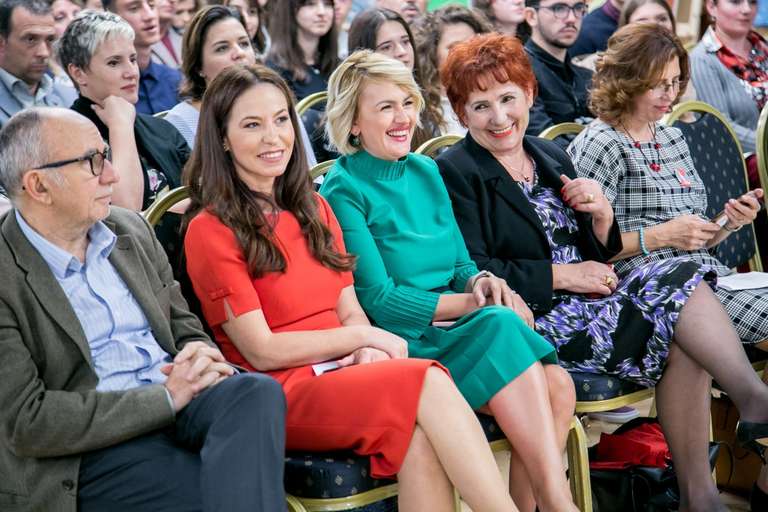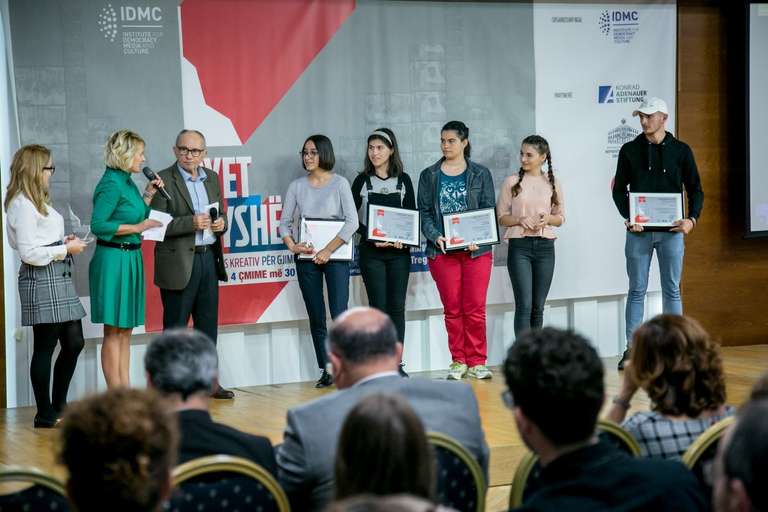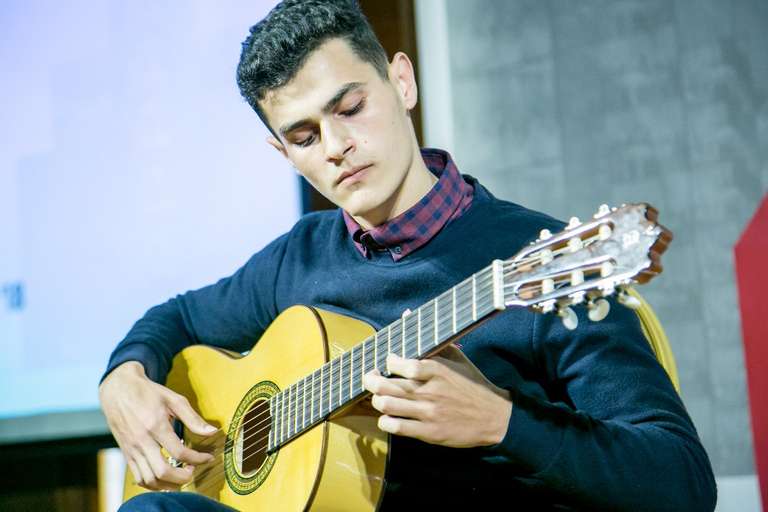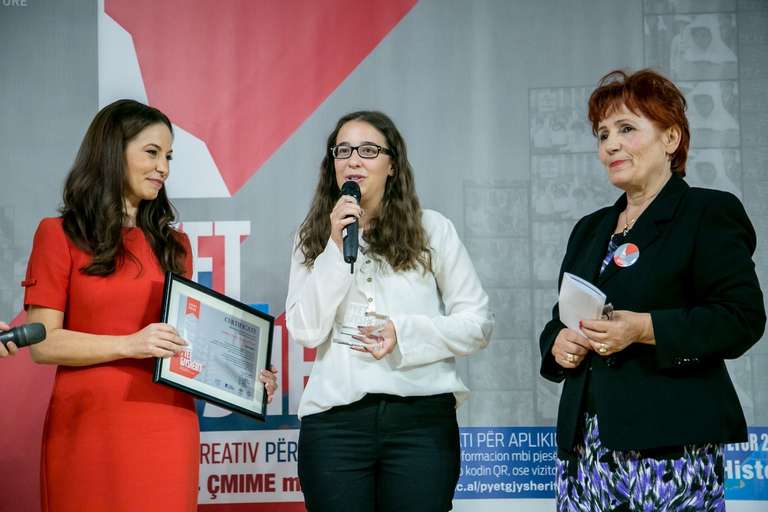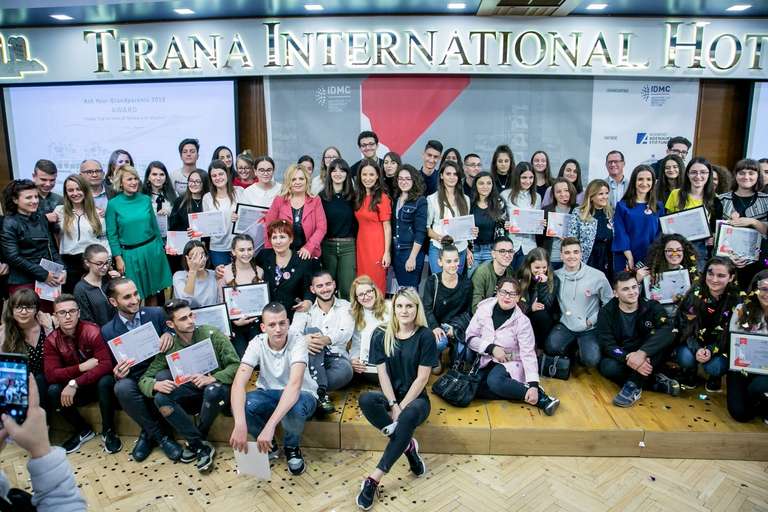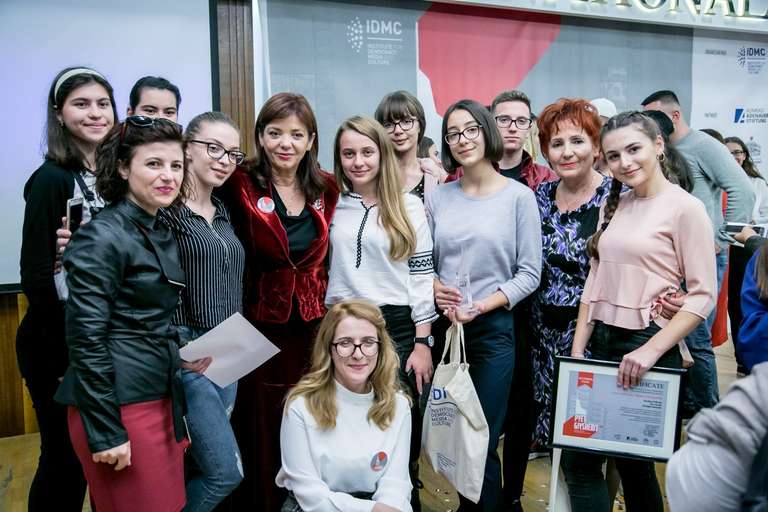Memory Days '18

Institute for Democracy, Media & Culture (IDMC) in partnership with Konrad Adenauer Foundation (KAS) would like to inform you that the annual event MEMORY DAYS will be organized this year on 22–31 October 2018. The third edition of MEMORY DAYS, under the motto "Identity and Memory" will bring different activities aiming at raising the awareness of the Albanian society about the consequences of the dictatorship crimes and strengthening the dialogue about the past.
Among the various activities to take place this year:
- Opening Ceremony of MEMORY DAYS and STASI Exhibition, 22 October
- "Literature as a Place of Memory", 23 October
- "Women and gender equality in the period 1912–1939", 24 October
- Training for Museums and Sites of Memories' staff, 25 October
- "Azizi" Movie Screening in Millennium Cinema, 25 October
- Presentation of Research Works on the Dictatorship, 26 October
- Public Reading of Files about Former Persecuted People, 26 October
- Presentation by Young Researchers in the Field of Dealing with the Past, 29 October
- Awards Ceremony: "Ask Your Grandparents 3", 30 October
- Scientific Conference "Outcast from Power", 30–31 October
Summary
- 1st Day, 22 October 2018: Opening Ceremony
- 2nd Day, 23 October 2018: Literature as a Place of Memory
- 3rd Day, 24 October 2018: Women and Gender Equality in the Years 1912–1939
- 4th Day, 25 October 2018: Training Museum and Memory Sites' Staff; "Aziz" Screening
- 5th Day, 26 October 2018: Book Presentations and Public Reading of a Former Persecutee's File
- 6th Day, 29 October 2018: Young Researchers Present Works on Dictatorship
- 7th Day, 30 October 2018: "Ask Your Grandparents 3" Winners Announced
- 7th–8th Days, 30–31 October 2018: International Conference
- Organizers
- Partners and Supporters

1st Day, 22 October 2018: Opening Ceremony
MEMORY DAYS edition bring more than 10 activities until 31 October
The third edition of MEMORY DAYS was open on 22 October 2018 at Tirana International Hotel under the motto "Identity and Memory". MEMORY DAYS is organized by the Institute for Democracy, Media & Culture in cooperation with Konrad Adenauer Foundation and other actors in the field of dealing with the past. This activity brought 10 activities from 22–31 October aiming to raise awareness of public opinion on the reflection about the past.
The opening ceremony was attended by ambassadors, high officials, history experts, former persecuted, other people interested in the subject and high school students from Tirana. Memory Days was welcomed by IDMC Director, Jonila Godole; Director of KAS in Tirana, Walter Glos; German Ambassador, Susanne Schütz; and the former persecuted, Reshat Kripa.
In her speech, on behalf of IDMC, Dr. Godole thanked KAS for the continued support and recalled that during these 28 years "the efforts of Albania for the transitional justice have been largely based on external factors". She mentioned the failure of the political class and insisted that foreigners, despite their will and ability, cannot replace the role of civil society and other relevant actors in the field of memory. Godole concluded her speech saying that "educating the youth with historical awareness is the key to making sure that the past is not repeated tomorrow".
KAS Director, Walter Glos also mentioned the lack of political will to deal with the communist past in Albania. He emphasized that "the communist legacy weighs heavily in these 28 years of democracy". Glos said that taking into consideration "over 40 years of the dark history of communism that are not reflected today in institutions or in schools, the past is at risk of being forgotten". Therefore, according to him, it is necessary to support any initiative that promotes discussion and reflection on the past.
German Ambassador Susanne Schütz, while welcoming the activity, insisted that "only who knows the past and deals with it has a future". The Ambassador said that "in order for the discussion on the past to remain open in Albania", she will continue to support IDMC and other actors in the field of memory in their activity.
The former persecuted Reshat Kripa showed a part of his history of suffering during the communist system and recalled that "in these 12 years after the adoption of the Resolution that would condemn the crimes of communism nothing has been done".
"All of us say we are innocent, but then who is guilty of our sufferings (of the former persecuted people)?!"
During the opening ceremony a keynote address about "The Obstructed Identity: Disturbed Personality Development in the German Democratic Republic (GDR)" was delivered by Dr. Karsten Dümmel, a German author, witness to the history of the GDR and Director of the Konrad Adenauer Foundation in Bosnia and Herzegovina. The participants paid high interest at Dümmel's presentation, who provided them with information on secret instructions and documents, dissolution measures, guidelines and orders of the State Security, and, the systematic "disciplining", "discrediting", "isolation" and "deprivation" of system critics and dissidents as "hostile and negative people" among other things. Dümmel showed also personal documents from Stasi Records Authority, which had been created during his more than twelve years of "processing" by the Stasi.
At the end of the opening ceremony was presented the "Monitor, Terrorize, Persecute" exhibition Dr. Marenglen Kasmi, AIDSSH member. The exhibition is about STASI – the secret police of the former German Democratic Republic (GDR). The exhibition contains basic information on the activity of the Ministry for State Security. Based on five themes - youth, travel, culture, church, and sport - it shows how STASI monitored and controlled the daily lives of the population. Selected individuals' fates clarify what "processing" by STASI meant to people. This exhibition is a collaboration between the Federal Commissioner for the Records of the State Security Service of the former German Democratic Republic, KAS and ADISSH.
2nd Day, 23 October 2018: Literature as a Place of Memory
Identity and memory in literature as important aspects for reflection on the past
Aiming to reveal the role of literature in the field of dealing with the past, the activity of the second day of "MEMORY DAYS 2018" was held at the "Europe House". Authors invited by the Institute for Democracy Media and Culture (IDMC) and Konrad Adenauer Foundation (KAS), Dr. Karsten Dümmel and Dr. Albert P. Nikolla, showed other aspects of communism, through the parts of their works and also through question-answers with those present in the activity.
Just as expected, the interest shown was high. Former persecuted, representatives of embassies, historians and many young people paid high attention to the views of two guests about the destruction of human identity from the dictatorial systems and the consequences that they face today in their respective societies, Germany or and Albania.
The topic of the activity focused on "Identity and Memory". For this part, Dr. Godole said in her greeting speech that "identity is created in an autobiographical process, combining memories and confessions that have accompanied our lives". She said that "every effort to give shape to our memories is an unstoppable part of this process". While the representative of Europa House, Mr. Erol Akdag, in his greeting speech said that the people and politicians of a country should have common will to deal with the past.
Under the moderation of IDMC director, Dr. Jonila Godole, the importance of literature in the transmission of human experiences was emphasized. German author, Dr. Karsten Dümmel, who during the Communist era in East Germany was persecuted and imprisoned because of his critical point of view towards the system, provided information on Stasi's permanent surveillance experiences. He read parts from his novel "Strohblumenzeit", showing through the history of the relationship of two young people, more or less what Eastern Germany faced for 50 years under the dictatorial regime.
It was interesting to hear in this event that during his persecution Dr. Dümmel had asked to go outside East Germany 56 times until 1988, when he was "bought" by the Federal Republic. Dr. Dümmel said that an intervention from the outside was necessary for this process, because "you could address everyone to the papers, but it was difficult to enable this". He also emphasized that, as in the case of ordinary Albanians, he had also been unable to move, saying that in general "those who went abroad had political ties or were part of Stasi".
In the other discussion, the anthropologist Dr. Albert P. Nikolla talked about his book "The New Albanian Man". Dr. Nikolla spoke extensively of the aspects that shaped the man of the dictatorship. He said "the so-called "new man" had to be loyal to the Party and give life to the Party, he should not be indifferent, but to spy on, invent and be aggressive to the "old man". By reading parts from his book, Dr. Nikolla emphasized that through the creation of the "new man" the communists managed to eliminate the elites and nowadays could inherit a feature such as "the feeling of mistrust and fear".
Dr. Karsten Dümmel added that "the new man" in East Germany was also with fear and terror, the terror "that needed the power to hold power".
"North Korea... East Germany... Albania also... have similarities with regard to the dictatorial history. They are places where people are taken hostage, are enslaved to the Party!"
3rd Day, 24 October 2018: Women and Gender Equality in the Years 1912–1939
The young researchers with the support of OSCE Presence in Albania and Women's Museum presented their main findings on women and gender issues in Albania in the period 1912-1939. Through their work, researchers brought to a light less known facts on gender in the period of the pre-WWII Albania. The presentations gave an inspiring overview and understanding of women's societal, political and economic challenges, and raise awareness on early champions of gender equality.
4th Day, 25 October 2018: Training Museum and Memory Sites' Staff; "Aziz" Screening
On framework of Memory Days 2018, KAS in partnership with the House of Leaves organized training especially for people working as guides in museums and sites of memories. The trainer of KAS for this activity was Kristin Kallweit, who works as a guide for the Berlin-Hohenschönhausen Memorial. The issues addressed in this training were the advantages and disadvantages of working with contemporary witnesses, and how these witnesses can be included in educational programs. Kallweit helped the participants to strengthen the culture of remembrance through their work by keeping memories alive and by making historic events interesting, and more importantly, relevant to a younger generation.
The second part of the fourth day of Memory Days 2018 was reserved to "Azizi" movie screening in Millennium Cinema in Tirana. "Azizi" is a movie by Luljeta Progni, directed by Gentian Kurti, supported by KAS. The movie is based on true stories of survivors of the most infamous camps for persecuted people in Albania, which were built in the early years of political persecution. The movie shows the communist terror on the innocent Albanians: women, children, and elders focusing the camera in 1948–1954, in some of the most notorious camps of the Albanian dictatorship such as Tepelena, Turan, Kucova and Berat. The main story describes the experiences of one of the survivors, called Aziz, intertwined with personal testimonies from other survivors.
The screening of "Azizi" movie was attended by more than 100 people, foreign and local actors working in the field of dealing with the past in Albania, former persecuted, people interested on the topic, media and many young people. After the movie screening under moderation of the journalist, Sonila Meço, the participants had the chance to discuss with the director of KAS, Walter Glos and the movie staff & collaborators, about the experience of shooting the movie and the importance of these movies in raising awareness in the consequences of the dictatorship past. The interesting part of the discussion for the public was the presence of Azizi – the true survivor of the story and "Azizi" the character of the movie, who both expressed gratitude on this project.
5th Day, 26 October 2018: Book Presentations and Public Reading of a Former Persecutee's File
MEMORY DAYS promote new research on communist dictatorship
IDMC and KAS during Memory Days 2018 offered to actors working in the field of memory, in Albania and abroad, the opportunity to present their scientific work on the dictatorship.
"Communism through archival documents 2" the second pedagogical tool for teachers produced by IDMC, which aims at raising awareness of high school educators and students on the content of archival documents from the former communist era, for which the public opinion in general has little information. This publication was presented by Fatmiroshe Xhemalaj and Jonila Godole. Godole said that "it is time for history to be taught through archival data". Further on, the publication was described in detail by Fatmiroshe Xhemalaj, curriculum expert. She said that the second volume, differently from the first volume that speaks about the "Repression in the period of self-isolation", stops at "Everyday life in the period of self-isolation".
"Encyclopaedic Dictionary of Victims of Communist Terror", Vol. VII, by ISKK and KAS was presented by Çelo Hoxha, representative of ISKK. He recalled that the publication has a lot of value for the scholars and especially families of persecuted people. Çelo said that "the encyclopedia of the victims serves the same as the codices, because in the future, when time goes by, the names of those who suffered dictatorship will remain".
Present in this activity, the director of KAS Albania, Walter Glos promised further support to projects aimed at pointing out, documenting and preserving the history of human suffering of dictatorship.
"Documents on cultural policies and the indoctrination of society by the Albanian communist state during 1945–1990" publication by the Institute of History at the Academy of Albanological Studies and KAS was presented by the historian, Beqir Meta. The first volume, according to him, could not include all the aspects and the general measure of communist indoctrination, so "it was decided to be specifically for the culture, literature and art".
Present in the event were high school students from different schools and former persecuted, who involved in the presentation of these books by making questions to the authors or to representatives who were directly involved in the research.
6th Day, 29 October 2018: Young Researchers Present Works on Dictatorship
The OSCE Presence in Albania, in cooperation with AIDSSH organized a discussion with young researchers on their research work at the Authority. The event aimed at raising awareness on the need for more academic research on human rights violations during the communist regime. It provided information for researchers how to effectively access the former Sigurimi files.
7th Day, 30 October 2018: "Ask Your Grandparents 3" Winners Announced
50 winners are awarded with study visits in sites of memory in Albania and Southeast Europe
The aim of the "Ask Your Grandparents" competition is to raise awareness among young people and Albanian society on the importance of the past, because without knowing the past, the future cannot be secure. This year, the competition invited young people aged 15–19 to reflect individually or as a team on Albania's past (1944–1997) in any of the following genres: Essay; Visual Arts; Multimedia. Under the motto #Tell1Story, the students were invited to research, consult historical records in the archives, and ask as many people as possible about their experiences.
From 1st of September to 15th of October 2018, 430 high school students with 312 works, from 43 schools all over Albania submitted in the competition their imaginations about the communist past in the form of Essays, Visual arts and Multimedia. After 1 and a half months of competition, the third edition of "Ask Your Grandparents" culminated in a special award ceremony at Tirana International Hotel with many high school students from all over Albania, accompanied by their parents and teachers. 50 young people became winners of study visits to sites of memory in Albania and Southeast Europe.
What was strongly emphasized by the jury composed of personalities such as school curriculum expert, Fatmiroshe Xhemalaj, the well-known journalist, Ilva Tare, the writer, Agron Tufa, who is also director of ISKK, the scriptwriter, Ylljet Aliçka and the multimedia expert, Shpend Bengu, was that the works of this year had an extremely high level considering the age of the participants from 15 to 19 years old.
Firstly the ceremony was greeted by IDMC director, Jonila Godole; KAS director, Walter Glos; the representative of Ministry of Education, Sports & Youth, Tatjana Vuçani the deputy Nora Malaj at the same time member of "Commission on Education and Public Information" and the Head of History Teachers Association, Vojsava Kumbulla.
In addition to the 9 winners chosen by the jury for the study visit to the sites of memory in Southeast Europe, IDMC and KAS surprised the other finalists announcing them as winners of a study visit to sites of memory in Albania.
The winners of the best works who will participate in the study visit in SEE are as following:
Network Prize – Xhorda Norja, through a realization in visual arts. Xhorda's work had more than 760 likes on IDMC Facebook page.
Visual Arts Prize – Eni Duka, with the work "Alive".
Special Prize – Erjola Jahaj and Ilirjana Zemani with the "End of a Life".
2 Multimedia Prizes – "Theatre of the Dictatorship" a group realization by Rexhina Pelivani, Rea Garuli and Adelajda Manushi and "Storm and Love", an individual work by Erlis Spahiu.
Best Essay Prize – Doris Balliçi with the essay "Decades of Terror".
7th–8th Days, 30–31 October 2018: International Conference
"Outcast from Power: The Eviction/Deportation System and the Use of Forced Labor in Albania, 1945–1990"
On 30–31 October 2018, on framework of MEMORY DAYS 2018, the Authority for Information on Former State Security Documents, in collaboration with the Institute of History at the Academy of Albanological Studies, the Institute for the Study of the Crimes and Consequences of Communism, and the Institute for the Integration of Former Political Persecuted organized the international scientific conference: "Outcast from Power: The Eviction/Deportation System and the Use of Forced Labor in Albania, 1945–1990". This conference was organized also in the framework of the project "Remembrance to Heal and Prevent," supported by UNDP in Albania and the Government of Italy, the Konrad Adenauer Foundation (KAS), and the European Network of Memory and Solidarity (ENRS). The conference aimed to review the period of the regime by focusing on the prison system, deportation and forced labor. Researchers from Albania, Kosovo, and worldwide presented papers on these topics.
* MEMORY DAYS 2018 activity is organized by IDMC & KAS in collaboration with OSCE Presence in Albania, German Embassy, Ministry of Education, Sports & Youth, Albanian Association of History Teachers, AIDSSH, ASA, ISKK, IIPP, House of Leaves, Europe House, Swiss Embassy and Tirana National Museum
Organizers


Contact
Matilda Karçanaj, Project Coordinator at IDMC | E-mail
Klaudja Zerva, Project Coordinator at KAS | E-mail
Partners and Supporters












